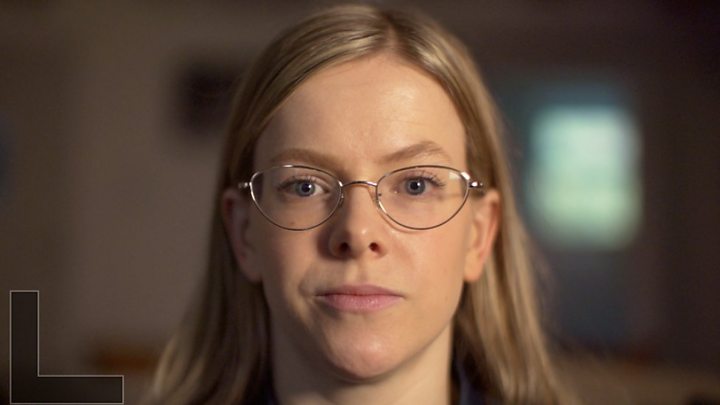
Media playback is unsupported on your device
"I felt very ashamed and I still do if I'm going through a bad flare."
For Phaedra Longhurst, 27, the effects of skin-picking disorder dermatillomania, eczema and acne are more than just skin deep. And she's not alone.
Each year, about 13 million people in the UK visit their GP with a skin complaint and a recent survey of dermatologists suggests there is insufficient access to related mental support.
The Royal College of GPs in Wales said while appointment times meant mental aspects may not always be discussed, an ongoing relationship with a doctor helped ensure they're picked up.
Phaedra has had eczema since she was a child, had acne in her early 20s and at university she developed dermatillomania or excoriation disorder - a condition creating the urge to compulsively pick your skin.
"It really affected me psychologically more than I realised at the time," she said.
"I personally have lacked support psychologically, there is still a lot of stigmatisation against those with a skin condition and there's a huge misconception around dermatillomania."
What is dermatillomania?
Most people pick their skin from time to time, but dermatillomania picking disorder is where you cannot stop.
The condition can cause cuts, bleeding or bruising, with people who have the condition often not realising they are picking or rubbing their flesh.
They may pick more when they feel anxious or stressed.
SOURCE: NHS
Phaedra said recurring problems can make you feel like "your skin is rebelling against you", adding: "It can be almost like a downward spiral. As you feel more upset and stressed, the more upset your skin will get."
The University of South Wales student, originally from St Newlyn East, in Cornwall, is now studying clinical dermatology in the hope she can help others with chronic conditions.
People like Ffion Rees, a 27-year-old radio producer from Swansea, who developed psoriasis as a teenager.
She praised the treatment of her condition but felt her mental health and the possible psychological effects were never discussed.
"I don't want to use the word 'depressed' but it definitely makes you feel low," she said.
"I think taking the time - and I know time isn't always the easiest thing with doctors - but to talk it through properly with someone is important, especially a young person."
Nine out of 10 dermatologists surveyed by the British Skin Foundation in 2019 said insufficient importance was placed on the psychological effects of skin complaints by healthcare services.
And 87% of the 245 dermatologists questioned at the time said patients had insufficient access to psychological support.
Dr Girish Patel, a British Skin Foundation spokesman based at Cardiff University, said: "You can't just look at the physical aspects of managing their disease.
"You have to take the broader and more holistic approach of realising skin disease goes hand in hand with psychological stress and psychiatric diseases.
"After all," he added, "the skin is the way we're ambassadors to the outside world."
Dr Mair Hopkin, joint-chairman of the Royal College of General Practitioners in Wales, said the organization recognised there were psychological effects for patients with skin conditions and the issue formed part of its membership exam.
She said: "GPs have 10-minute appointments most of the time, and that doesn't give you long to cover the physical aspects of a disease and the underlying psychological disorder.
"That's where having continuity of care with a nurse and GP can be really helpful.
"They get to know you over a period of time and can pick up if you're feeling distressed, or it enables you to develop a relationship and feel able to talk about these things."
Dr Hopkin said it was also important for patients to mention mental health issues to their doctor when they arise.
"Skin" - Google News
January 10, 2020 at 08:11AM
https://ift.tt/2sUVFqy
Eczema, acne and skin-picking: 'More mental health help needed' - BBC News
"Skin" - Google News
https://ift.tt/2Rv81zw
Shoes Man Tutorial
Pos News Update
Meme Update
Korean Entertainment News
Japan News Update
No comments:
Post a Comment